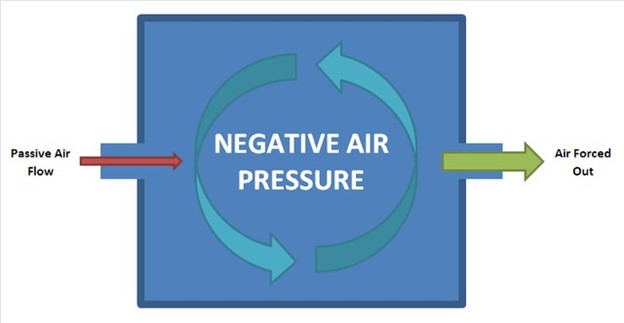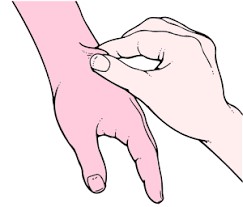A nurse is preparing to admit a 6-year-old with varicella to the pediatric unit.
Which of the following actions should the nurse take?
Administer aspirin to the child for fever
Use droplet precautions when caring for the child.
Assign the child to a negative air pressure room.
Assess the child for Koplik spots
The Correct Answer is C

This is because varicella, or chickenpox, is a highly contagious disease caused by the varicellazoster virus (VZV), which can spread through the air or by direct contact with the fluid from the blisters. A negative air pressure room prevents the air from the room from circulating to other areas of the hospital, reducing the risk of transmission to other patients and staff.
Choice A is wrong because aspirin should not be given to children with chickenpox, as it can cause a serious condition called Reye’s syndrome, which affects the brain and liver. Instead, acetaminophen can be used to reduce fever.
Choice B is wrong because droplet precautions are not enough to prevent the spread of chickenpox. Droplet precautions involve wearing a mask and gloves when in close contact with the patient, but they do not prevent the virus from traveling through the air. Airborne precautions, which include a negative air pressure room and wearing a respirator, are needed for chickenpox.
Choice D is wrong because Koplik spots are not a sign of chickenpox, but of measles, another viral infection that causes a rash. Chickenpox causes an itchy rash with small, fluid-filled blisters that crust over.
Nursing Test Bank
Naxlex Comprehensive Predictor Exams
Related Questions
Correct Answer is D
Explanation
Choice A reason
Abdomen area is not appropriate: Assessing skin turgor on the abdomen is not commonly performed. The abdomen may not be the most accurate site for assessing skin turgor, especially in older adults, as it can be influenced by factors such as body fat distribution.
Choice B reason:
Shoulder are is not appropriate: The shoulder is not a typical site for assessing skin turgor. It is generally not used for this purpose, as it may not provide reliable results
Choice C reason:
Stomach is not the correct answer.: Assessing skin turgor on the stomach is also not commonly performed. The abdomen or stomach may not be the most accurate site for assessing skin turgor, especially in older adults.
Choice D reason
When assessing skin turgor in an older adult client, the nurse should lift the skin on the neck to evaluate its elasticity and hydration status. Skin turgor is a measure of skin's elasticity and is commonly used as an indicator of hydration in both adults and older adults.
To assess skin turgor, the nurse will gently pinch a small amount of skin on the back of the client's hand or the front of the chest (sternum). However, since the options listed do not include these areas, the closest alternative for an older adult would be the neck.

Correct Answer is D
Explanation
The correct answer is choice D. The client is oriented times three.
This means that the client knows who they are, where they are, and what time it is. This indicates a high level of consciousness and a normal Glasgow coma scale (GCS) rating of 15.
Choice A is wrong because the client withdraws from pain.
This means that the client reacts to a painful stimulus by pulling away from it. This indicates a lower level of consciousness and a GCS rating of 4 for motor response.
Choice B is wrong because the client is unable to obey commands.
This means that the client does not follow simple instructions such as moving a limb or opening their eyes. This indicates a lower level of consciousness and a GCS rating of 1 or 2 for motor response.
Choice C is wrong because the client opens eyes to sound.
This means that the client does not open their eyes spontaneously, but only when they hear a loud noise. This indicates a lower level of consciousness and a GCS rating of 3 for eye opening.
The Glasgow coma scale is a clinical tool used to assess the level of consciousness of a person after a brain injury.
It consists of three tests: eye opening, verbal response, and motor response.
Each test has a score range from 1 to 6, with higher scores indicating higher levels of consciousness. The total score ranges from 3 to 15, with lower scores indicating higher risk of death.
Whether you are a student looking to ace your exams or a practicing nurse seeking to enhance your expertise , our nursing education contents will empower you with the confidence and competence to make a difference in the lives of patients and become a respected leader in the healthcare field.
Visit Naxlex, invest in your future and unlock endless possibilities with our unparalleled nursing education contents today
Report Wrong Answer on the Current Question
Do you disagree with the answer? If yes, what is your expected answer? Explain.
Kindly be descriptive with the issue you are facing.
